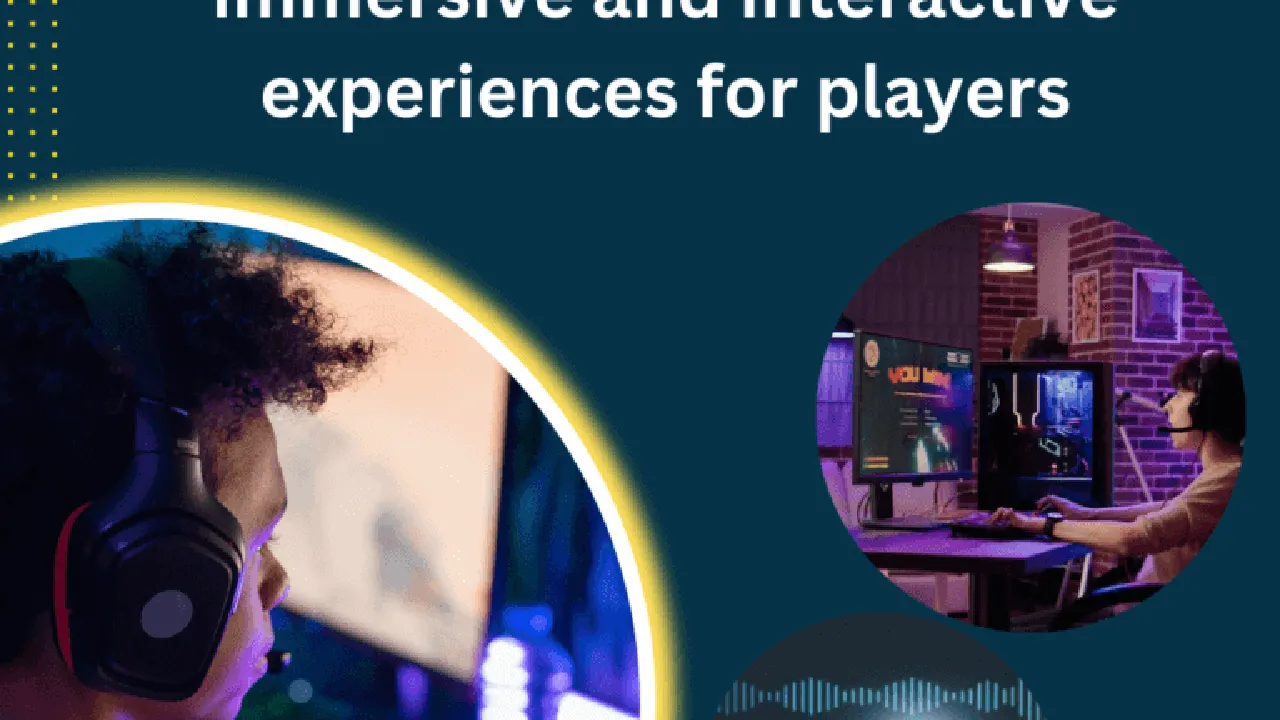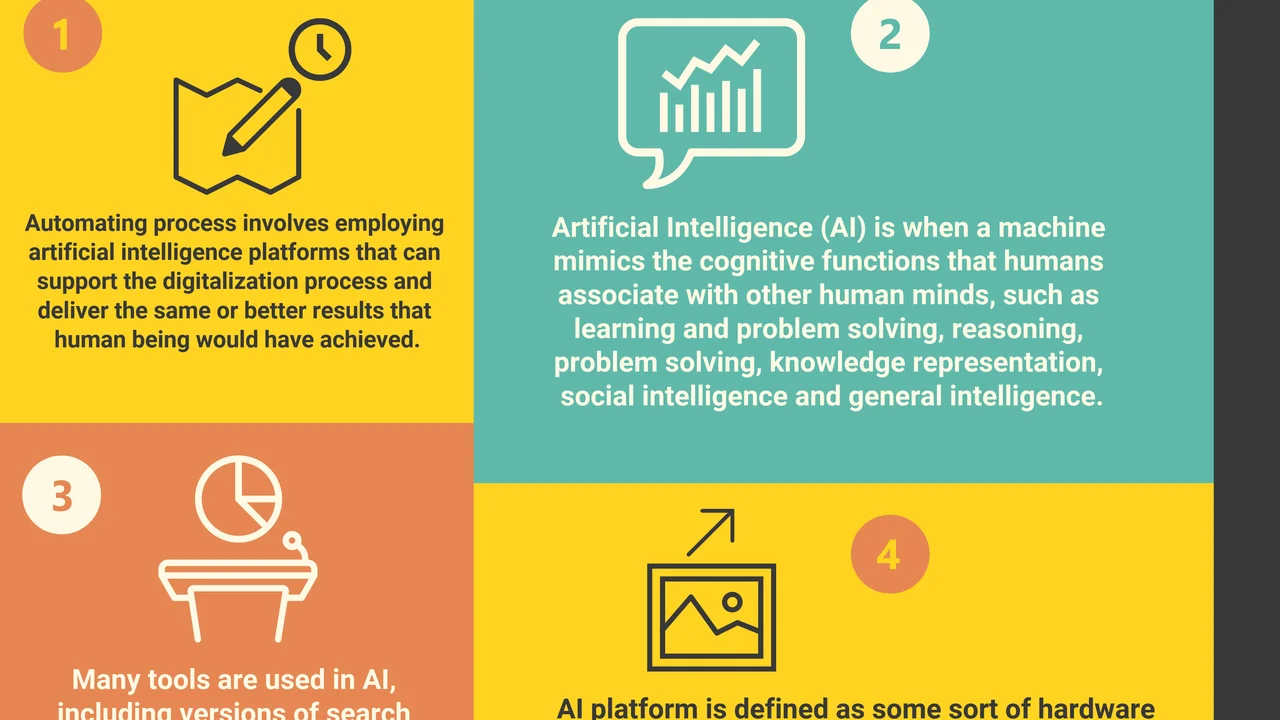AI in Entertainment: Creating Immersive Experiences
Explore the world of Artificial Intelligence with our comprehensive guide to AI events, conferences, newsletters, job boards, and blogs. Stay updated on the latest trends, discover career opportunities, and connect with AI experts.

Why Attend AI Conferences? Key Benefits and Networking Opportunities
AI conferences are more than just gatherings; they're dynamic hubs where innovation comes to life. Attending these events provides invaluable opportunities to learn about cutting-edge advancements, connect with industry leaders, and gain practical insights that can transform your career and business strategies.
One of the primary benefits is the chance to hear from leading researchers, engineers, and entrepreneurs who are shaping the future of AI. These experts share their knowledge through keynote speeches, panel discussions, and technical workshops, covering a wide range of topics from machine learning and deep learning to natural language processing and computer vision.
Networking is another crucial aspect of AI conferences. These events bring together a diverse community of professionals, including data scientists, software developers, product managers, and investors. You can connect with potential collaborators, find mentors, explore job opportunities, and build relationships that can last a lifetime.
AI conferences also offer a unique platform to showcase your own work and ideas. Many events feature poster sessions, demo areas, and startup competitions where you can present your research, demonstrate your products, and receive feedback from peers and experts. This can be a great way to gain recognition, attract funding, and launch your career.
Top AI Conferences in 2024 A Curated List
Here's a selection of some of the most prominent AI conferences to consider attending in 2024:
- NeurIPS (Neural Information Processing Systems): A leading conference for researchers in machine learning and computational neuroscience. Known for its rigorous peer-review process and high-quality presentations.
- ICML (International Conference on Machine Learning): Another top-tier conference for machine learning researchers, covering a broad range of topics from theory to applications.
- CVPR (Conference on Computer Vision and Pattern Recognition): The premier conference for computer vision researchers, showcasing the latest advancements in image recognition, object detection, and video analysis.
- ACL (Association for Computational Linguistics): The leading conference for natural language processing researchers, focusing on topics such as machine translation, text summarization, and sentiment analysis.
- AI Summit: A business-oriented conference that brings together AI experts and business leaders to discuss the practical applications of AI in various industries.
- ODSC (Open Data Science Conference): A community-driven conference focused on open-source data science tools and techniques.
Tips for Making the Most of AI Conferences
To maximize your experience at AI conferences, consider these tips:
- Plan ahead: Review the conference agenda and identify the sessions and workshops that are most relevant to your interests.
- Network strategically: Set goals for who you want to meet and make an effort to connect with them.
- Prepare questions: Think about the questions you want to ask the speakers and presenters.
- Take notes: Capture the key takeaways from each session and workshop.
- Follow up: Connect with the people you met on social media and continue the conversation.
AI Newsletters Subscribe for Daily AI Updates
The Importance of Staying Informed with AI Newsletters
In the rapidly evolving world of Artificial Intelligence, staying informed is critical. AI newsletters provide a convenient and efficient way to keep up with the latest developments, trends, and research findings. By subscribing to relevant newsletters, you can receive daily or weekly updates directly in your inbox, saving you time and effort in searching for information.
AI newsletters often feature curated content from a variety of sources, including research papers, industry news, blog posts, and social media updates. This allows you to get a comprehensive overview of the AI landscape without having to sift through countless websites and articles.
Many AI newsletters also offer exclusive content, such as interviews with AI experts, analysis of emerging trends, and practical tips for implementing AI solutions. This can provide valuable insights that you won't find anywhere else.
Recommended AI Newsletters for Professionals and Enthusiasts
Here are some of the top AI newsletters to consider subscribing to:
- The Batch (by Andrew Ng): A weekly newsletter by AI pioneer Andrew Ng, featuring insightful commentary on the latest AI news and trends.
- Import AI (by Jack Clark): A weekly newsletter by Jack Clark, focusing on the societal and ethical implications of AI.
- MIT Technology Review AI Newsletter: A weekly newsletter by MIT Technology Review, covering the latest breakthroughs in AI research and their impact on society.
- Towards Data Science: A platform for data scientists and AI professionals to share their knowledge and insights. Their newsletter features a selection of the best articles published on the site.
- AI Weekly: A comprehensive weekly newsletter that curates the most important AI news, research, and resources.
How to Choose the Right AI Newsletter for You
When selecting an AI newsletter, consider these factors:
- Your interests: Choose newsletters that focus on the specific areas of AI that you're most interested in.
- Your level of expertise: Select newsletters that are appropriate for your level of knowledge and experience.
- The quality of the content: Look for newsletters that provide accurate, reliable, and insightful information.
- The frequency of the updates: Choose newsletters that send updates at a frequency that suits your needs.
AI Job Boards Find AI Jobs and Opportunities
Why Use AI Job Boards for Your Career Search?
AI job boards are specialized platforms that connect job seekers with employers in the Artificial Intelligence field. These platforms offer a targeted approach to career searching, allowing you to focus on opportunities that specifically match your skills and experience in AI.
Unlike general job boards, AI job boards often feature listings for specialized roles such as machine learning engineer, data scientist, AI researcher, and AI product manager. This can save you time and effort in sifting through irrelevant job postings.
AI job boards also provide valuable resources for career development, such as salary surveys, resume tips, and interview advice. These resources can help you prepare for your job search and increase your chances of landing your dream job in AI.
Top AI Job Boards for Aspiring and Experienced Professionals
Here's a list of some of the best AI job boards to explore:
- AIJobs.com: A leading AI job board with a wide range of job postings from companies of all sizes.
- DataJobs.com: A job board focused on data science and AI roles, offering advanced search filters and career resources.
- LinkedIn: A professional networking platform that also features a robust job board with numerous AI job postings.
- Indeed: A popular job search engine that aggregates job postings from various sources, including AI companies.
- AngelList: A platform for startups and investors that also features job postings for AI roles in early-stage companies.
Tips for Maximizing Your Success on AI Job Boards
To improve your chances of finding a job on AI job boards, follow these tips:
- Create a strong profile: Highlight your skills, experience, and accomplishments in AI.
- Use relevant keywords: Include keywords that recruiters are likely to use when searching for candidates.
- Tailor your resume: Customize your resume for each job application, emphasizing the skills and experience that are most relevant to the specific role.
- Network with recruiters: Connect with recruiters on LinkedIn and attend virtual career fairs.
- Follow up on your applications: Send a thank-you note after your interview and follow up with the recruiter to inquire about the status of your application.
AI Blogs Follow the Top AI Experts and Thought Leaders
Why Read AI Blogs? Insights and Expert Perspectives
AI blogs offer a valuable source of information and insights on the latest trends, research, and applications of Artificial Intelligence. By following leading AI experts and thought leaders, you can gain a deeper understanding of the field and stay ahead of the curve.
AI blogs often feature in-depth articles, tutorials, and case studies that provide practical guidance on implementing AI solutions. These resources can help you learn new skills, solve complex problems, and improve your performance in AI-related roles.
Many AI blogs also offer commentary on the ethical and societal implications of AI, sparking important discussions about the responsible development and deployment of this technology.
Recommended AI Blogs for Continuous Learning
Here are some of the top AI blogs to follow:
- Distill: A blog that publishes high-quality, interactive articles on machine learning and related topics.
- OpenAI Blog: The official blog of OpenAI, featuring announcements of new research, product releases, and policy updates.
- Google AI Blog: The official blog of Google AI, showcasing the latest advancements in AI research and their applications in Google products.
- Facebook AI Blog: The official blog of Facebook AI, highlighting their research efforts in areas such as computer vision, natural language processing, and robotics.
- The AI Blog (by Microsoft): The official blog of Microsoft AI, covering a wide range of topics related to AI and its impact on business and society.
Tips for Engaging with AI Blogs Effectively
To get the most out of AI blogs, consider these tips:
- Read actively: Don't just skim the articles; take the time to read them carefully and think critically about the content.
- Engage with the authors: Leave comments on the blog posts and ask questions.
- Share your insights: Share the articles you find interesting with your network on social media.
- Use a feed reader: Subscribe to the blogs you want to follow using a feed reader to stay updated on their latest posts.
Recommended AI Products and Their Use Cases
Here are a few specific AI products and their use cases, along with approximate pricing (note that pricing can vary significantly based on features, usage, and contract terms):
- GPT-3 (by OpenAI): A powerful language model that can be used for a variety of natural language processing tasks, such as text generation, translation, and question answering. Use Cases: Content creation, chatbot development, code generation. Pricing: Pay-as-you-go, starting at a few cents per 1000 tokens.
- TensorFlow (by Google): An open-source machine learning framework that can be used to build and train a wide range of AI models. Use Cases: Image recognition, object detection, natural language processing. Pricing: Open-source, free to use. However, cloud-based services for training and deploying TensorFlow models may incur costs.
- Amazon SageMaker (by AWS): A fully managed machine learning service that provides a comprehensive set of tools for building, training, and deploying AI models. Use Cases: Predictive analytics, fraud detection, personalized recommendations. Pricing: Pay-as-you-go, based on the resources consumed.
- Dataiku: A collaborative data science platform that enables teams to build and deploy AI solutions at scale. Use Cases: Data preparation, machine learning model building, predictive analytics. Pricing: Varies depending on the size and needs of the organization. Starts with free trial and then custom pricing.
- H2O.ai: An open-source machine learning platform that provides a variety of algorithms and tools for building and deploying AI models. Use Cases: Predictive analytics, risk management, fraud detection. Pricing: Open-source core platform (free to use). Enterprise versions are available with more features and support, with custom pricing.
Comparing AI Products: A Quick Overview
Choosing the right AI product depends on your specific needs and technical expertise. Here's a brief comparison of the products mentioned above:
- GPT-3 vs. TensorFlow: GPT-3 is a pre-trained language model, while TensorFlow is a framework for building custom models. GPT-3 is easier to use for specific NLP tasks, while TensorFlow offers more flexibility for developing custom AI solutions.
- Amazon SageMaker vs. Dataiku: Both are comprehensive platforms for building and deploying AI solutions. SageMaker is tightly integrated with the AWS ecosystem, while Dataiku offers a more platform-agnostic approach.
- TensorFlow vs. H2O.ai: Both are open-source machine learning platforms. TensorFlow is a more general-purpose framework, while H2O.ai is specifically designed for building and deploying predictive analytics models.
:max_bytes(150000):strip_icc()/277019-baked-pork-chops-with-cream-of-mushroom-soup-DDMFS-beauty-4x3-BG-7505-5762b731cf30447d9cbbbbbf387beafa.jpg)






